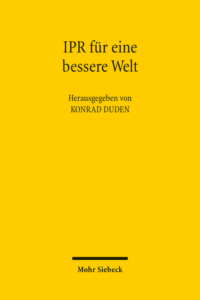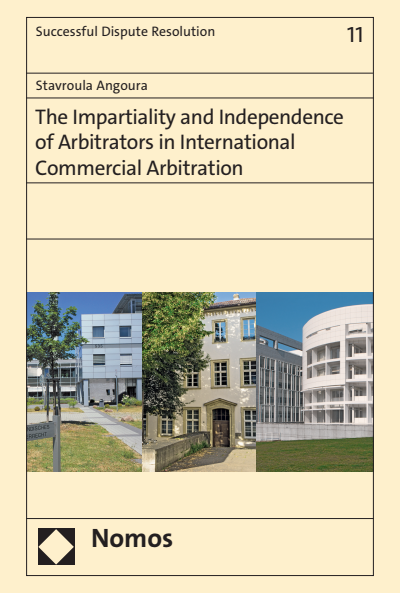The EU Commission’s Proposal of 1 December 2021 outlines, in its introductory Recitals:
“Efficient cross-border judicial cooperation requires secure, reliable and time-efficient communication between courts and competent authorities. Moreover, this cooperation should be carried out in a way that does not create a disproportionate administrative burden and is resilient to force majeure circumstances. These considerations are equally important for individuals and legal entities, as getting effective access to justice in a reasonable time is a crucial aspect of the right to a fair trial, as enshrined in Article 47 of the EU Charter of Fundamental Rights of the European Union (the Charter).
To protect their rights, both individuals and legal entities should be able to rely on effective remedies. Mere access to judicial authorities does not automatically constitute effective access to justice. For this reason, it is important to find ways to facilitate the conduct of procedures and reduce practical difficulties as much as possible. Individuals and legal entities should be able to exercise their rights and comply with their obligations in a swift, cost-efficient and transparent way.
At EU level, there exists a comprehensive set of instruments designed to enhance judicial cooperation and access to justice in cross-border civil, commercial and criminal cases. Many of these govern the communication between authorities, including in certain cases with the EU Justice and Home Affairs (JHA) agencies and bodies, and between authorities and individuals or legal entities. However, most instruments do not provide for engaging in such communication through digital means. Even where they do, other gaps may exist, such as a lack of secure and reliable digital communication channels or non?recognition of electronic documents, signatures and seals. This deprives judicial cooperation and access to justice of using the most efficient, secure and reliable channels of communication available.
In addition, the COVID-19 pandemic has shown that force majeure events may severely affect the normal functioning of Member States’ justice systems. During the crisis, in many cases national courts have been unable to maintain normal operations due to the spread of the virus. Member States were forced to take a number of measures ranging from full lockdowns to treating certain priority cases only. At the same time, the use of digital technologies (e.g. email, videoconference, etc.) helped to limit disruption. However, many of the technical solutions employed were developed in an ad hoc manner, and did not necessarily satisfy security and fundamental rights standards to the full. Judicial cooperation and access to justice in EU cross-border cases have been similarly affected, and the COVID-19 pandemic has underlined the need to ensure the resilience of communication.
Against this background, the rules on digitalisation set out in this proposal aim at improving access to justice and the efficiency and resilience of the communication flows inherent to the cooperation between judicial and other competent authorities in EU cross-border cases.”
The Commission further summarises its important Proposal as follows (copied from here):
“1. Digitalisation of cross-border judicial cooperation
What are the main elements of the proposal?
This initiative aims to modernise EU cross-border judicial cooperation:
- It proposes digitalising communication between judicial and other authorities in cross-border judicial cooperation procedures in civil (including family), commercial and criminal matters.
- In addition, it gives individuals and businesses the option to communicate with judicial and other authorities through electronic means in cross-border cases.
- It will ensure electronic communication from individuals, businesses and legal practitioners are accepted, and have legal certainty – namely through the compulsory recognition of electronic signatures and seals and the legal admissibility of electronic documents.
- In cross-border cases, the proposal will make it possible to conduct oral hearings in civil and criminal procedures through videoconferencing.
- Parties to civil and commercial cases with cross-border implications will be able to pay court fees electronically.
How will this initiative improve the way in which authorities communicate?
The proposal establishes a dedicated and secure decentralised IT system. This system will be composed of the IT systems of the Member States and of Justice and Home Affairs (JHA) agencies and bodies, which will be interconnected through interoperable access points (based on the e-CODEX system). Where Member States do not have existing national IT systems, they will have the choice to use, free of charge, a Commission-developed reference implementation solution.
Alternative means of communication between authorities will be allowed only in case of disruption of the system, or in other specific circumstances where the use of the decentralised IT system is not appropriate.
How will the proposal benefit individuals and businesses involved in EU cross-border judicial procedures?
To ensure smooth access to courts or other judicial authorities, individuals, businesses and legal practitioners will be able to use electronic means of communication to file claims and otherwise communicate with the authorities in EU cross-border civil law cases (for instance, under the European Small Claims procedure).
Where national IT portals for electronic communication in EU civil law matters exist, they can continue to be used. In parallel, the Commission will develop a European access point hosted on the European e-justice Portal. Each person will be able to log in, create an account and file all types of submissions, claims, requests, and standardised forms, both to national judicial authorities and to those of other Member States. The use of the European access point will be free of charge.
Individuals, businesses and legal practitioners will not be obliged to use electronic means of communication with courts and authorities, and may continue to use paper or other types of traditional communication.
What will the cost for Member States for implementing the IT systems be?
Member States will have to bear the cost related to the decentralised IT system. The Commission will provide funding opportunities to support Member States in setting up the necessary infrastructure, if needed.
The Commission expects that the “access points” of the decentralised IT system will be based on e-CODEX that can be used free of charge. However, national IT systems need to be developed so that they may be connected through e-CODEX.
The Commission will finance creation, maintenance and future development of a software, which Member States may decide to use instead of developing national IT systems.
How will personal data be protected?
The digitalisation of existing data exchanges will not introduce any new personal data categories compared to what is already exchanged today, nor will it affect the existing data processing arrangements.
The security of personal data processing is essential to protect data subjects. e-CODEX was designed specifically for the justice area, and uses encryption to ensure security. Using e-CODEX for cross-border exchanges will increase security and thereby mitigate the risk of security breaches. e-CODEX is therefore clearly an improvement compared to present exchanges using paper or unsecure e-mails.
2. Digital information in cross-border terrorism cases
In the aftermath of the terrorist attacks on the Bataclan concert hall in Paris 2015, the necessity to identify links between and coordinate cross-border terrorist investigations and prosecutions early on became evident. Learning from this experience, Eurojust established the European Judicial Counter-Terrorism Register to reinforce the judicial response in Member States to terrorist threats and to improve security for citizens.
However, the data processing environment at Eurojust is outdated and exchange of information with national competent authorities is not structurally digitalised. This makes information exchange cumbersome, leading to suboptimal results in the exchange of information.
What are the main elements of the proposal?
- It will modernise Eurojust‘s information system. It will integrate in it the European Judicial Counter Terrorism Register and its functionalities, in order to improve the capacities of link identification.
- It will set-up secure digital communication channels between national authorities and Eurojust.
- It will introduce a digital communication tool to facilitate digital exchange of structured data and to automate processes.
- It will introduce a clear legal basis in the Eurojust Regulation for cooperation with non-EU liaison prosecutors.
What exactly is the European Judicial Counter-Terrorism Register?
The European Judicial Counter-Terrorism Register is a unique EU-wide database for judicial proceedings relating to terrorist offences. The authorities of the Member States provide information on these cases to Eurojust where it is cross-checked with information on other cases relating to terrorism, but also relating to other cases of serious crime.
Once a potential link – such as the same or similar name of a suspect – is established, the National Members at Eurojust follow up to see if this potential link can be validated. Once it is clear that a link exists, Eurojust informs the national authorities involved in the case. Eurojust also provides further support to such investigations.
How will the proposal improve the European Judicial Counter-Terrorism Register?
Digitalising data exchange will enable national authorities to send more information to Eurojust. It will be quick and secure. At Eurojust, the new information management system will identify many links automatically and require much less manual intervention to identify links.
Thereby Eurojust will be able to give faster and better feedback to national authorities and support them in the follow-up. This will enable the national authorities to have a better understanding of the full extent of the criminal activities, to prosecute terrorist offences and serious cross-border crimes more efficiently and not stop the investigations at their own Member State’s borders.
How will the proposal benefit the general public?
The European Judicial Counter-Terrorism Register and the follow-up through judicial cooperation in criminal matters is essential to effectively combat terrorism and thus ensure security of citizens across the EU. The European Judicial Counter-Terrorism Register may also contribute to respecting fundamental rights; the communication and cooperation of national judicial authorities may reveal links between cases and therefore prevent multiple prosecutions and convictions of transnational crimes. Thus, it will ensure the right not to be tried or punished twice in criminal proceedings for the same criminal offence (Article 50 Charter of Fundamental Rights of the European Union).
- Joint Investigation Teams (JITs) collaboration platform
Joint Investigation Teams (JITs) are set up by two or more States for specific criminal investigations with a cross border impact and for a limited period of time. This framework allows the competent judicial and law enforcement authorities involved to organise and coordinate their actions jointly and investigate efficiently even in very complex cases such as organised crime activities not bound by any borders.
Although JITs have proven to be one of the most successful tools for cross-border investigations and prosecutions in the EU, practice shows they have been facing several technical difficulties preventing them from gaining the highest possible efficiency. The main difficulties concern secure electronic exchange of information and evidence (including large files), secure electronic communication with other JIT members and JIT participants, such as Eurojust, Europol and the European Anti-Fraud Office (OLAF), as well as a joint daily management of a JIT.
The JIT collaboration platform will solve these problems and deliver the technical support that has been missing so far.
What are the main elements of the proposal?
- Establish a Joint Investigation Teams collaboration platform – The platform will be a highly secure online collaboration tool aiming to facilitate exchanges and cooperation within JITs throughout their duration.
- Provide technological support to those involved in JITs to increase the efficiency and effectiveness of cross-border investigations and prosecutions conducted by them.
- Ensure that those involved in JITs can more easily share information and evidence collected in the course of the JIT activities, by enabling them to more easily and more safely communicate with each other, and by facilitating the joint daily management of a JIT.
What will the key functionalities of the platform be?
- Allow secure non-traceable communication to be stored locally on the devices of the users, including a communication tool offering an instant messaging system, a chat feature, audio/video-conferencing and a functionality replacing regular emails.
- Allow the exchange of operational information and evidence, including large files, through an upload/download system designed to store the data centrally only for a limited period of time necessary for a technical transfer of the data. As soon as all addresses downloaded the data, the data will be automatically deleted from the platform.
- Allow evidence traceability – an advanced logging mechanism allowing to keep a trace of who did what and when regarding all evidence exchanged through the platform, and, consequently, supporting the need to ensure admissibility of evidence in front of a court.
What will the cost of the platform be?
The Regulation establishing the platform is envisaged to incur the following costs:
- Development of the platform – the one-off cost incurred for eu-LISA – around €10 million.
- Technical maintenance and operation of the platform – the recurring cost incurred for eu-LISA – around €3 million per year.
For Member States, no technical costs are considered because the centralised component of the platform is web-based. It will not require any adaptions of the national technical infrastructure. The same pertains to the communication software, which will simply need to be downloaded on each device of the JIT platform’s users. Access to the platform for the competent Union bodies, offices and agencies, such as Eurojust, Europol the EPPO and OLAF, will be driven by the same principles and will not incur any costs.
How will personal data be protected?
The platform itself will not change nor will the underlying legal frameworks for conducting a JIT and as such the already existing obligation of Member States to comply with data protection rules for the exchange of personal data. The platform is a secure and reliable technical addition to allow for a better, swifter and safer way of conducting these communications and exchanges. Additionally, the JIT collaboration platform will fully comply with the EU data legislation.”


 Angelika Nussberger’s keynote paper on the role of the European Convention on Human Rights vis-à-vis Private International Law is followed by up by nine contributions (one of which in English) by younger scholars engaging with different aspects of the conference theme, such as the extraterritoriality of data protection law, corporate liability for human-rights violations, the potential of uniform law fo further sustainability or the unilateralist approach of EU PIL to cases involving non-EU member states. The volume also includes the papers from, and a transcript of, the (English) panel discussion between Ralf Michaels, Roxana Banu, and Hans van Loon.
Angelika Nussberger’s keynote paper on the role of the European Convention on Human Rights vis-à-vis Private International Law is followed by up by nine contributions (one of which in English) by younger scholars engaging with different aspects of the conference theme, such as the extraterritoriality of data protection law, corporate liability for human-rights violations, the potential of uniform law fo further sustainability or the unilateralist approach of EU PIL to cases involving non-EU member states. The volume also includes the papers from, and a transcript of, the (English) panel discussion between Ralf Michaels, Roxana Banu, and Hans van Loon.
